Share
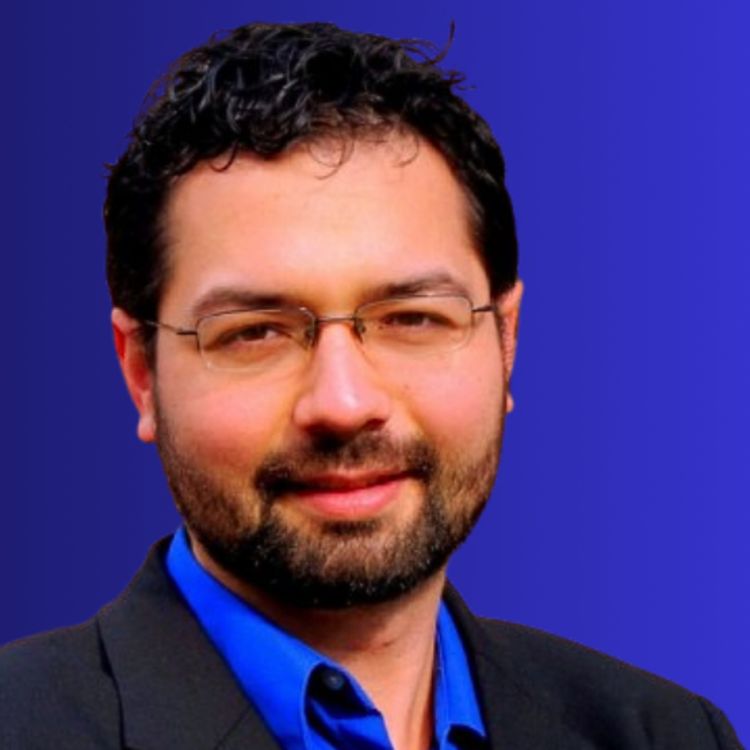
The IR thinker
Illusion of Hegemony - Christopher Mott | 2025 Episode 1
This episode of The IR thinker asks whether global hegemony is truly fading or simply changing shape, in conversation with Dr Christopher Mott. The discussion traces the historical roots of hegemony, examines debates about a “post-hegemonic” age, and considers China’s ambitions alongside the gradual transformation of United States power. It explores the implications of emerging multipolarity for international order, the role of middle powers and non-state actors in reshaping strategic dynamics, and how shifting domestic politics feed back into grand strategy and foreign policy choices.
Dr Christopher Mott is a Washington Fellow at the Institute for Peace & Diplomacy and an international relations scholar specialising in geopolitics, strategy and the intersection of defensive realism and questions of sovereignty. His research engages with how great and middle powers adapt to changing distributions of power, how fears and threat perceptions shape United States foreign policy, and how realist theory can illuminate contemporary debates about hierarchy, hegemony and the future of the international system.
Publications:
The Rise of a Multipolar West Asia: Why the Middle East Resists Hegemony
Turkey: A Middle Power Pioneer
Middle Powers in the Multipolar World
The Formless Empire: A Short History of Diplomacy and Warfare in Central Asia
Polycentrism and the Eurasian Balance of Power
Designing the Ideal International Relations Education
Christopher’s Blog:
The Trickster’s Guide to Geopolitics
Content
00:00 – Introduction
01:58 – Defining Hegemony: Historical Roots and Growth
07:57 – The Post-Hegemonic Age: Myth or Reality?
12:53 – China’s Hegemonic Ambitions: Emerging Strategies
18:01 – Hegemony in Decline: Systemic or Cyclical Shifts?
23:39 – US Hegemony: Erosion or Evolution Ahead?
24:44 – Global Multipolarity: Adapting to New Power Centres
40:41 – Middle Powers: Bridging Gaps in Global Governance
48:33 – Misplaced Fears: Unpacking US Foreign Policy
55:21 – Non-State Actors: Shaping the Future of Power
58:20 – Realism and Dr. Mott: A Research Perspective
More episodes
View all episodes
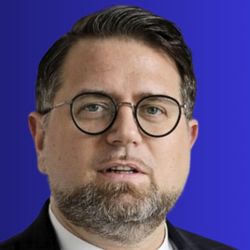
31. Transformative Realism - Marc Saxer | 2025 Episode 31
40:52||Season 2025, Ep. 31In this episode, we sit down with political analyst Marc Saxer to explore his theory of Transformative Realism and why he believes we’re living through a profound systemic crisis. From the erosion of international norms to the urgent need for reimagined statecraft, Marc offers a compelling framework for understanding the forces reshaping our world and what political leadership must look like in response.Marc SaxerMarc Saxer is a political analyst, strategist, and writer with two decades of experience in international relations. He heads the Asia Pacific office of the Friedrich-Ebert-Shtiftung and convenes the Asia Strategic Foresight Group.Publications:Transformative Realism: How to overcome the system crisisGeopolitical Conflict in the Wolf World: Great Power Competition and the Illiberal Revolt against the Liberal OrderContent00:00 - Introduction01:38 - Understanding Transformative Realism04:50 - Defining Systemic Crisis07:39 - Marc’s Most Compelling Crisis Case Study15:08 - The Erosion of International Norms and Rules18:24 - Recognizing the Signs of Systemic Crisis20:18 - The Role of Agency in Transformative Realism28:18 - Reimagining Statecraft and Political Leadership33:44 - The Crisis in Modern Statecraft Education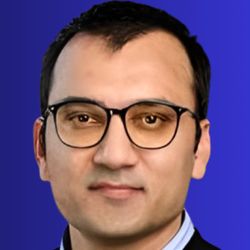
30. India's Diplomacy - Vineet Thakur | 2025 Episode 30
01:00:38||Season 2025, Ep. 30In this episode, Vineet Thakur unpacks the historical and intellectual foundations of Indian diplomacy. We discuss classical strategic traditions, civilisational and colonial legacies, caste and elite networks in diplomatic culture, non-alignment and strategic autonomy, neighbourhood diplomacy, and India’s contemporary practice of multi-alignment amid shifting great-power rivalries.Vineet ThakurVineet Thakur is a University Lecturer in International Relations at the Institute for History, Leiden University. He received his doctorate from Jawaharlal Nehru University, New Delhi, in 2014 and has held academic positions and fellowships across India, South Africa, and the United Kingdom. His professional experience includes teaching appointments at Ambedkar University Delhi, the University of Johannesburg, and the School of Oriental and African Studies, following which he joined Leiden University in 2017. He has been a fellow at the University of Cambridge, the Netherlands Institute for Advanced Study, and Rhodes University.His research is situated in postcolonial international relations, with a particular focus on the politics of knowledge, disciplinary hierarchies, and the global intellectual history of International Relations, especially in the Indian context.Publications:V.S. Srinivasa Sastri: A Liberal LifeIndia’s First Diplomat: V.S. Srinivasa Sastri and the Making of Liberal InternationalismPostscripts on Independence: Foreign Policy Discourses in India and South AfricaContent00:00 – Introduction and Framing of India’s Diplomatic Trajectories02:03 – Mandala Theory and Kautilya’s Arthashastra as Lenses for Contemporary Regional Policy05:10 – Intellectual and Historical Inspirations Behind India’s Diplomatic Traditions06:32 – Civilisational State Narratives Versus Colonial Administrative Foundations of Indian Diplomacy10:53 – Social Stratification and the Influence of Caste Networks on Diplomatic Recruitment and Culture22:12 – Nehruvian Idealism and Non-Alignment as Strategy: Autonomy, Hedging, and Principled Neutrality27:55 – Overlooked and Marginalised Practices in India’s Cold War Diplomatic History30:30 – The Strategic Logic and Practical Outcomes of the “Neighbourhood First” Diplomatic Doctrine35:18 – Structural Constraints and Policy Stalemate in India–Pakistan Diplomatic Engagement37:34 – China’s Strategic Shadow and Its Effects on India’s Diplomatic Posture Towards Pakistan39:08 – India’s Diplomatic Approach to Tibet in Historical and Contemporary Perspective43:29 – Multi-Alignment as Strategy: Balancing Great Powers in India’s Contemporary Foreign Policy47:45 – The Absence of a Permanent United Nations Security Council Seat and Its Diplomatic Consequences51:15 – India–Africa Relations and the Underdeveloped Economic Dimension of South–South Diplomacy54:21 – Hindu Nationalism and Its Influence on the Ideational Foundations of Indian Diplomacy58:24 – Neglected Themes and Under-Researched Domains in the Study of Indian Foreign Policy*** at 10:29, there is a missing word ‘overstated’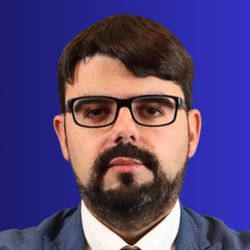
29. Bulgaria's Energy Security - Martin Vladimirov | 2025 Episode 29
45:05||Season 2025, Ep. 29In this episode, Martin Vladimirov unpacks Bulgaria’s evolving energy landscape in the aftermath of the war in Ukraine. We discuss shifts in the country’s energy mix, offshore wind prospects in the Black Sea, the strategic role of gas pipelines and interconnectors, and the future of key assets such as the Chiren gas storage facility, the Maritsa Iztok lignite complex, and potential new nuclear reactors.Martin VladimirovMartin Vladimirov is Director of the Energy and Climate Program at the Center for the Study of Democracy (CSD), where his work focuses on European and Balkan energy security, energy transition pathways, and the geopolitical dimensions of Russian and Chinese economic influence. He has extensive experience as an energy analyst for The Oil and Gas Year, contributing in-depth reports on Kazakhstan, Azerbaijan, and Saudi Arabia, and has consulted for international oil companies across the GCC and MENA regions. Martin is also an affiliated expert with the European Geopolitical Forum in Brussels and previously worked as an energy and economic analyst for CEE Market Watch, covering Iran and Central Asia.Publications: Managing Assets Under OFAC SanctionsEnergy and Climate Security in Europe: From Crisis Response to Structural TransformationThe Kremlin Playbook in Mexico: Asymmetric InfluenceThe Imperative to Weaken the Kremlin’s War Economy: What the West Can DoClosing the backdoor: The new TurkStream is here. Can the West stop it?Content00:00 – Introduction01:38 – Bulgaria’s Evolving Energy Mix after the War in Ukraine09:07 – Exploring Bulgaria’s Offshore Wind Potential12:45 – Strategic Energy Pipelines Crossing Bulgaria17:16 – Bulgaria’s Relationship with Gazprom and Gas Contracts24:14 – The Greece–Bulgaria Gas Interconnector (IGB)27:05 – Alexandroupolis LNG Terminal and Regional Gas Connectivity28:53 – The Role of Chiren Underground Gas Storage34:31 – The Future of the Maritsa Iztok Lignite Power Complex40:50 – Assessing the Feasibility of Two New Nuclear Reactors
28. EU Citizenship - Dimitry Kochenov | 2025 Episode 28
01:11:31||Season 2025, Ep. 28This episode of The IR thinker features a wide-ranging conversation with Professor Dimitry Kochenov on what it really means to “belong” in a world where citizenship is conditional, unequal, and sometimes absent altogether. We unpack the paradox of citizenship as both a legal fiction and a lived necessity, probing whether institutions truly “grant” citizenship, what it means to live as stateless, and whether “real” EU citizenship exists beyond the rhetoric. The discussion traces how EU citizenship can simultaneously empower individuals, through mobility, rights, and protection, while also hollowing out democratic accountability in member states. We examine “market citizenship” and the monetisation of legal status, asking whether citizenship-by-investment schemes that effectively sell access to the EU should be abolished, and close with a critical look at multiple citizenship: is it an emerging path towards global justice or simply an additional layer of privilege for the already mobile?Dimitry KochenovProfessor Dimitry Kochenov is a leading scholar of global citizenship and constitutionalism, with a particular focus on the rule of law, EU federalism, and external relations law. He heads the Rule of Law research group at the Democracy Institute of Central European University in Budapest and teaches Global Citizenship at CEU’s Department of Legal Studies in Vienna. Through his work on statelessness, EU citizenship, and the political economy of “citizenship for sale”, he has become a key voice in contemporary debates on how legal status shapes human dignity, mobility, and the evolving architecture of international order.Publications:EU enlargement and the failure of conditionality: pre-accession conditionality in the fields of democracy and the rule of lawCitizenshipCitizenship and residence sales: rethinking the boundaries of belongingUkraine and the EU enlargement: what is the law and which is the way forward?Content00:00 - Introduction02:02 - The Paradox: Can Institutions Grant Citizenship?06:23 - Living Stateless: Can Humans Exist Without Citizenship?16:56 - Does “Real” EU Citizenship Actually Exist?36:06 - Democracy’s Double Edge: How EU Citizenship Both Empowers and Undermines50:26 - Market Citizenship: When Human Worth Becomes Economic Value56:39 - Citizenship for Sale: Should the EU abolish those schemes?01:08:06 - One Citizenship or Many? The Multiple Citizenship Debate
27. Contemporary Meaning of Nuclear Weapons - Stephen Herzog | 2025 Episode 27
01:11:42||Season 2025, Ep. 27This episode of The IR thinker offers a clear and structured tour of contemporary nuclear strategy with Dr Stephen Herzog, moving from the basic categories of nuclear weapons to the political struggles surrounding their control. We unpack the logic of existential and extended deterrence, alliance commitments and escalation management, and examine how arms control agreements and the Non-Proliferation Treaty sustain, yet also entrench, a great power nuclear monopoly. The conversation tackles aspirant nuclear states, debates over “how many is enough”, and the tension between confidence and overconfidence in crisis signalling, before turning to how emerging technologies are reshaping verification, command-and-control, and the broader governance of nuclear weapons.Stephen HerzogDr Stephen Herzog is Professor of the Practice at the James Martin Center for Nonproliferation Studies at the Middlebury Institute of International Studies at Monterey and an Associate of the Project on Managing the Atom at Harvard Kennedy School. A leading specialist in nuclear non-proliferation and arms control, he combines academic expertise with policy experience gained as a technical nuclear arms control official at the U.S. Department of Energy, where he worked directly on the implementation and verification of nuclear agreements. His work bridges theory and practice to illuminate how deterrence, treaty regimes and technological change interact in shaping global nuclear security.Publications:Atomic Backfires: When Nuclear Policies FailArtificial Intelligence and Nuclear Weapons Proliferation: The Technological Arms Race for (In)visibility‘What about China?’ and the threat to US–Russian nuclear arms controlAtomic responsiveness: How public opinion shapes elite beliefs and preferences on nuclear weapon useWinning Hearts and Minds? How the United States Reassured During the Russo-Ukrainian WarThe Trilateral Dilemma: Great Power Competition, Global Nuclear Order, and Russia’s War on UkraineContent00:00 – Introduction01:57 – Types and Categories of Nuclear Weapons08:40 – Tactical Nuclear Weapons: Historical and Contemporary Contexts10:32 – Understanding the Concept of Existential Deterrence16:39 – Extended Deterrence and the Logic of Alliance Security25:54 – The NPT and the Persistence of Great Power Monopoly31:53 – Treaty Reform or Status Quo? The Politics of Nuclear Governance33:12 – Aspirant States and the Quest for Nuclear Capability34:47 – Escalation Control: Between Arms Agreements and Overconfidence43:15 – The Dilemma of Quantity: Many vs. Few Nuclear Weapons50:38 – Authority and Legitimacy: Who Decides Nuclear Access?55:58 – Technological Challenges to Nuclear Security and Control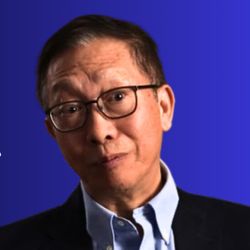
26. China's Institutional Genes - Chenggang Xu | 2025 Episode 26
01:04:41||Season 2025, Ep. 26This episode of The IR thinker features Professor Chenggang Xu on the conceptual and empirical foundations of his book Institutional Genes: Origins of China’s Institutions and Totalitarianism. The conversation unpacks what he means by “institutions” and “institutional genes”, how this framework helps to open the black box of political change, and why certain systems prove remarkably resilient over time. We explore the notion of “stemness”, the contrasts between imperial China and European monarchies, and how specific “genes” in the Russian system shaped Bolshevism. Professor Xu then traces Mao’s fusion of Marxism with the legacy of Qin Shi Huang, the institutional differences between Soviet and Chinese communism, and whether contemporary China should be understood as totalitarian or authoritarian. The discussion closes by examining tyrannical incentive structures, the risks of Soviet-style stagnation, and how the institutional genes framework can be extended beyond domestic politics to foreign policy and other domains of global governance.Chenggang XuProfessor Chenggang Xu is a Senior Research Scholar at the Stanford Center on China’s Economy and Institutions (SCCEI) and a Visiting Fellow at the Hoover Institution. A leading scholar of institutional economics, political economy and the Chinese political–economic system, he is widely known for developing the concept of regionally decentralised authoritarianism and, more recently, for his work on institutional genes and the historical roots of Chinese totalitarianism. His research is extensively cited in both academic and policy circles, and he has been awarded the China Economics Prize and the Sun Yefang Economics Prize in recognition of his contribution to the study of institutions, development and authoritarian governance.Publications:The fundamental institutions of China’s reforms and developmentIncentives, information, and organizational formIndustrial clustering, income and inequality in rural ChinaClustering, growth and inequality in ChinaContent00:00 - Introduction01:45 - Why this book? The story behind ‘Institutional Genes’06:34 - Defining ‘institution’ in the institutional genes framework10:45 - Opening the black box: How institutional genes explain political change16:29 - The concept of ‘stemness’ explained20:01 - Imperial China vs European monarchies: Why China was more autocratic28:28 - The three Russian genes that created Bolshevism33:43 - Mao’s fusion: Marx plus Qin Shi Huang38:58 - Soviet vs Chinese communism: Key institutional differences42:23 - Totalitarian or authoritarian? Defining modern China48:35 - Tyrannical incentive-compatibility: How totalitarian systems motivate53:01 - Will China face Soviet-style economic stagnation?58:52 - Applying institutional genes to foreign policy01:03:16 - Beyond domestic politics: Where else can we apply this framework?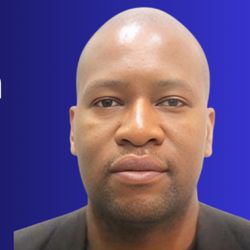
25. Does African IR Theory Exist? - Madalitso Zililo Phiri | 2025 Episode 25
59:52||Season 2025, Ep. 25This episode of The IR thinker features an incisive conversation with Dr Madalitso Zililo Phiri on what it means to think International Relations from Africa rather than merely about Africa. We interrogate whether an African IR theory exists, how concepts such as Ubuntu, communalism and non-statist authority can reframe sovereignty and power, and what this implies for applying African ideas beyond the continent. The discussion probes Africa’s marginalisation in multilateral decision-making, the contemporary mutations of Pan-Africanism, and South Africa’s foreign policy through a realist lens. We also explore how liberal and mainstream constructivist IR traditions have historically excluded African experiences, what a decolonial constructivism might look like in practice, and whether scholars should pursue a distinct “African school” or treat Africa as a generative site for pluralising the discipline as a whole.Madalitso Zililo PhiriDr Madalitso Zililo Phiri is a Post-Doctoral Fellow in the South Africa–United Kingdom Bilateral Research Chair in Political Theory at the University of the Witwatersrand. A former Visiting Fellow at the Centre of African Studies and Research Associate at Wolfson College, University of Cambridge, and a Carnegie Corporation Fellow via the SSRC’s Next Generation of Social Science in Africa programme, his research spans the political economy of racialised welfare in South Africa and Brazil, the sociology of race, and Black political thought. He has taught African Studies, Sociology, Politics and Research Methods at Cambridge, Wits, Pretoria and Rhodes universities, bringing a decolonial and critical theoretical lens to the study of power, knowledge and global order.Publications:The Colour of Inequality in South Africa and Brazil: making sense of social policy as reparationsMonuments and Memory in Africa: reflections on coloniality and decolonialityAgainst Imperial Social Policy: Recasting Mkandawire’s Transformative Ideas for Africa’s LiberationHistory of Racial Capitalism in Africa: Violence, Ideology, and PracticeContent00:00 – Introduction02:05 – Does African IR Theory Exist? Epistemologies Beyond the West06:27 – Ubuntu, Communalism, and Reimagining Sovereignty10:45 – Applying African Concepts to Non-African Issues15:01 – Authority Beyond the State: African Approaches to Power19:48 – Africa’s Exclusion from Multilateral Decision-Making25:13 – Pan-Africanism in 2025: Dead or Evolving?29:26 – South Africa’s Power Politics Through a Realist Lens34:24 – Liberal IR Theory’s Historical Exclusion of Africa37:46 – Constructivism: Opening or Limiting Space for African Voices?41:22 – Postcolonialism and Decolonizing IR Theory47:22 – Which IR Theory Dominates African Scholarship Today?50:14 – The Risks of Essentializing “African IR Theory”52:57 – Continental Focus vs. State-Centric Analysis in African IR56:54 – Distinct African School or Contribution to Global Pluralism?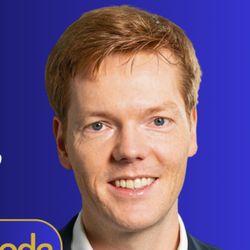
24. Natural Gas in Germany: Security, Supply, Transition - Andreas Schroeder | 2025 Episode 24
45:00||Season 2025, Ep. 24This special 100th episode of IR thinker revisits Germany’s gas security with Andreas Schroeder, the very first expert to appear on the channel in January 2023. We trace how Germany has reshaped its gas architecture since the war in Ukraine, from the shift towards short-term pipeline contracts and the rapid expansion of LNG import capacity to changes in storage policy and declining domestic gas consumption. The discussion examines plans for new gas-fired power plants, the security implications of the nuclear phase-out, and Germany’s emerging role as a gas hub and exporter in competition with neighbours such as Poland. We also explore the country’s growing dependence on US and Norwegian supplies, the debate over Russian LNG, and the prospects of sourcing gas from Africa, Qatar and Canada, before assessing the key risks that will define Germany’s natural gas security in the years ahead.Andreas SchroederAndreas Schroeder is Head of Energy Analytics (Quantitative) at Independent Commodity Intelligence Services (ICIS), where he leads an international team analysing global energy market dynamics. His work combines quantitative modelling with market intelligence to assess gas flows, contract structures and price formation across Europe and beyond, and he regularly contributes to analytical reports and media commentary on European gas security and energy transition challenges.Content00:00 – Introduction03:13 – Current Natural Gas Flows to Germany and Contract Structures05:08 – The Logic Behind Short-Term Pipeline Contracts07:27 – LNG Imports and the Expansion of German Infrastructure09:47 – Gas Storage Developments Since the War in Ukraine14:03 – Declining Gas Consumption in Germany: Causes and Implications16:58 – New Gas-Fired Power Plants in Germany19:32 – The Impact of the Nuclear Phase-Out on Energy Security22:20 – Innovative Gas Procurement Strategies for the German Market24:42 – Germany’s Role as a Gas Exporter26:43 – Export Infrastructure and Capacity28:23 – Competition Between Germany and Poland in Gas Trade30:43 – Dependence on US and Norwegian Gas After the Russian Cut-Off33:26 – Can the EU Operate Without Russian LNG?35:24 – The Potential of African Gas for Germany36:53 – Qatar’s Role in Germany’s Gas Supply39:53 – Canada as an Emerging Gas Partner for Germany41:52 – Future Challenges for Germany’s Natural Gas Security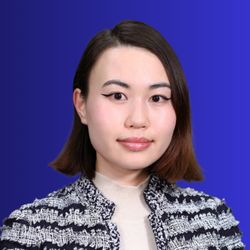
23. Mongolia's Energy Security - Telmen Altanshagai | 2025 Episode 23
56:39||Season 2025, Ep. 23This episode of The IR thinker explores Mongolia’s evolving energy landscape with policy analyst Telmen Altanshagai, focusing on how a landlocked state navigates dependence, diversification and development. The conversation maps Mongolia’s current energy mix and security challenges, from coal reliance, heating and grid issues in Ulaanbaatar to infrastructure gaps in rural areas, before turning to governance structures and policy coordination. We examine the strategic implications of projects such as the Power of Siberia 2 gas pipeline and India’s investment in Mongolia’s first oil refinery, alongside China’s expanding role and the prospects for regional connectivity through concepts like the East Asian Power Grid. The episode also considers energy poverty and inequality, the impact of climate change, constraints posed by national debt, and what policy priorities a Mongolian prime minister should pursue to strengthen energy security and harness the global energy transition for long-term, broad-based development.Telmen AltanshagaiTelmen Altanshagai is a Washington, D.C.–based independent policy analyst and Energy and Climate Intern at Observer Research Foundation America, as well as a Fellow at the Global Policy Institute. Her work focuses on energy security and development economics across the Global South, with particular expertise on Mongolia, where she analyses how shifting global energy systems affect economic stability and long-term development trajectories. Publications:Mongolia’s Gas Pipeline Diversification Comes With RiskMongolia seeks new markets in EurasiaMongolia’s Precarious Energy SecurityContent00:00 – Introduction01:31 – Overview of Mongolia’s Energy Mix and Security Landscape04:13 – Pathways for Energy Diversification07:08 – Can China Serve as a Source of Energy Diversification?08:44 – Heating Infrastructure and Urban Electricity Challenges in Ulaanbaatar11:05 – Persistent Dependence on Coal14:02 – Energy Access and Infrastructure in Rural Mongolia16:03 – Structure and Dynamics of Energy Governance18:59 – Potential Benefits of the Power of Siberia 2 Pipeline for Mongolia22:46 – Domestic Expertise and Policy Debate on Power of Siberia 224:32 – Assessing the Need for an Oil Pipeline from Russia25:32 – India’s Investment in Mongolia’s First Oil Refinery27:31 – Mongolia’s Broader Energy Investment Strategy31:32 – Domestic Investment Climate and Incentives for the Energy Sector34:30 – China’s Expanding Energy Investments in Mongolia35:59 – The East Asian Power Grid Concept and Regional Connectivity37:59 – Energy Poverty and Socioeconomic Inequality41:22 – Climate Change Impacts on Mongolia’s Energy Security43:48 – Building Human Capital for Energy Security46:18 – National Debt and Its Implications for Energy Policy49:12 – Comparing Africa and Mongolia: Mining Wealth and Public Benefit51:47 – Policy Priorities: What Should a Mongolian Prime Minister Do to Strengthen Energy Security?54:54 – Future Directions and Research Opportunities